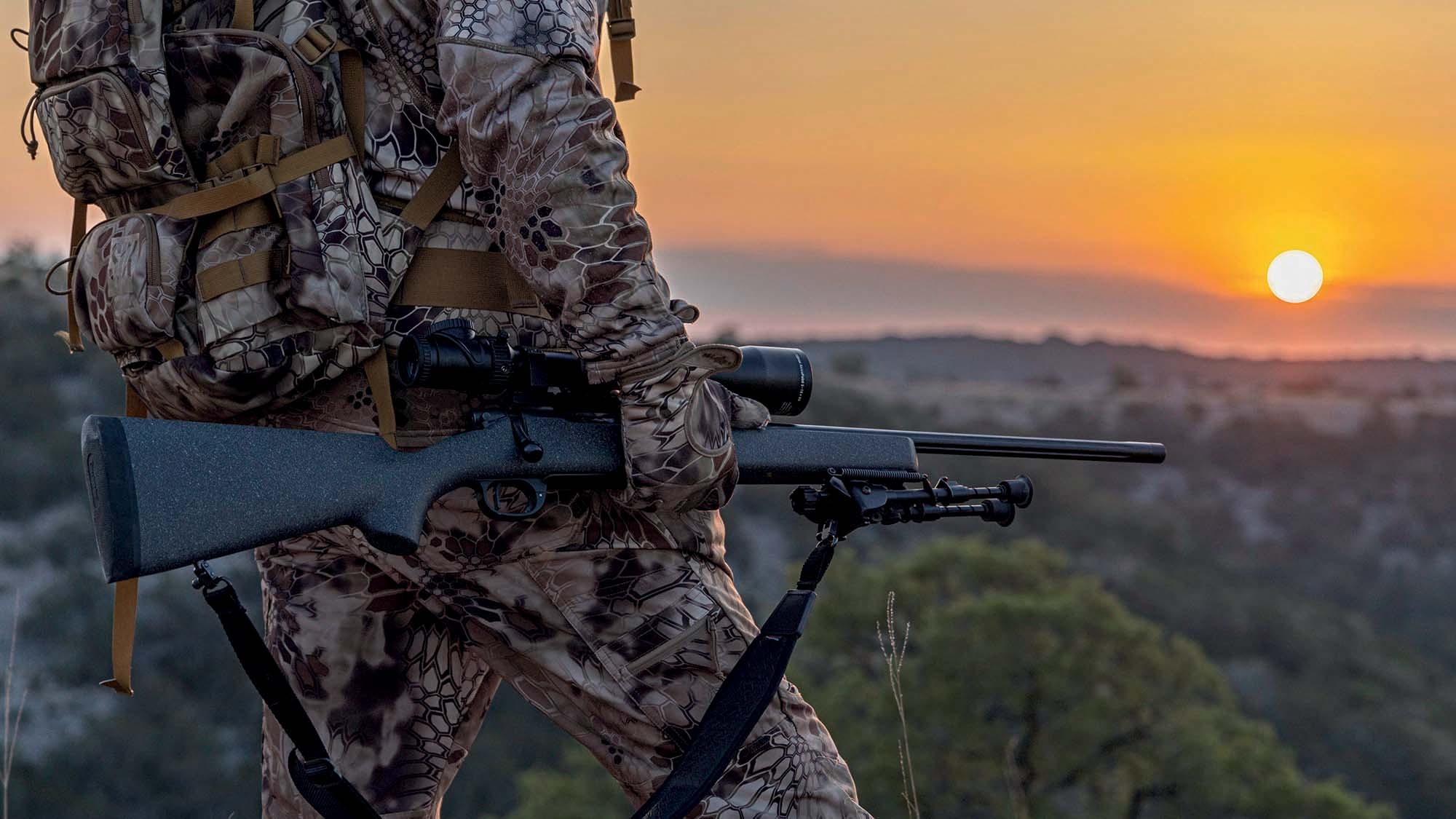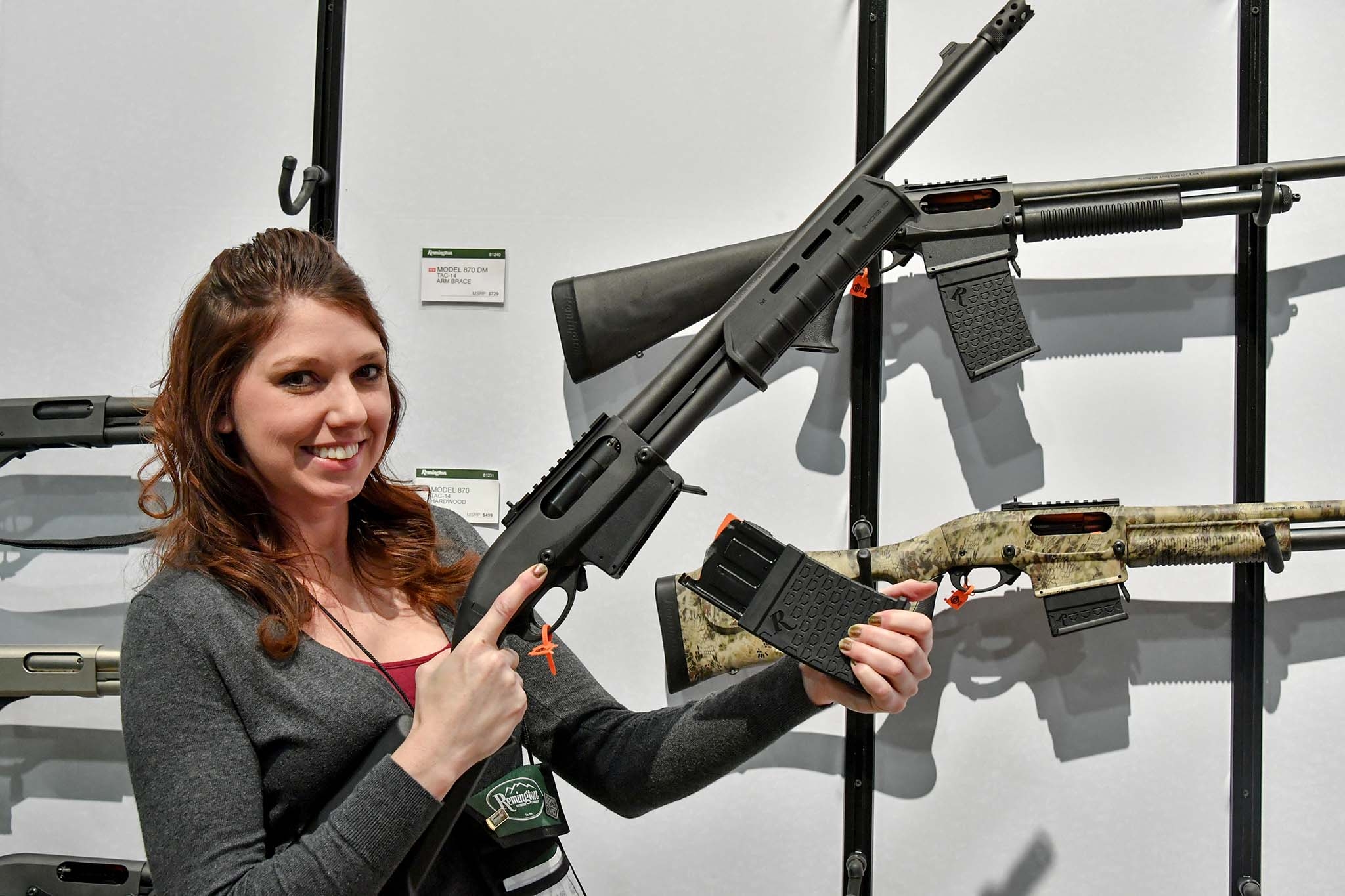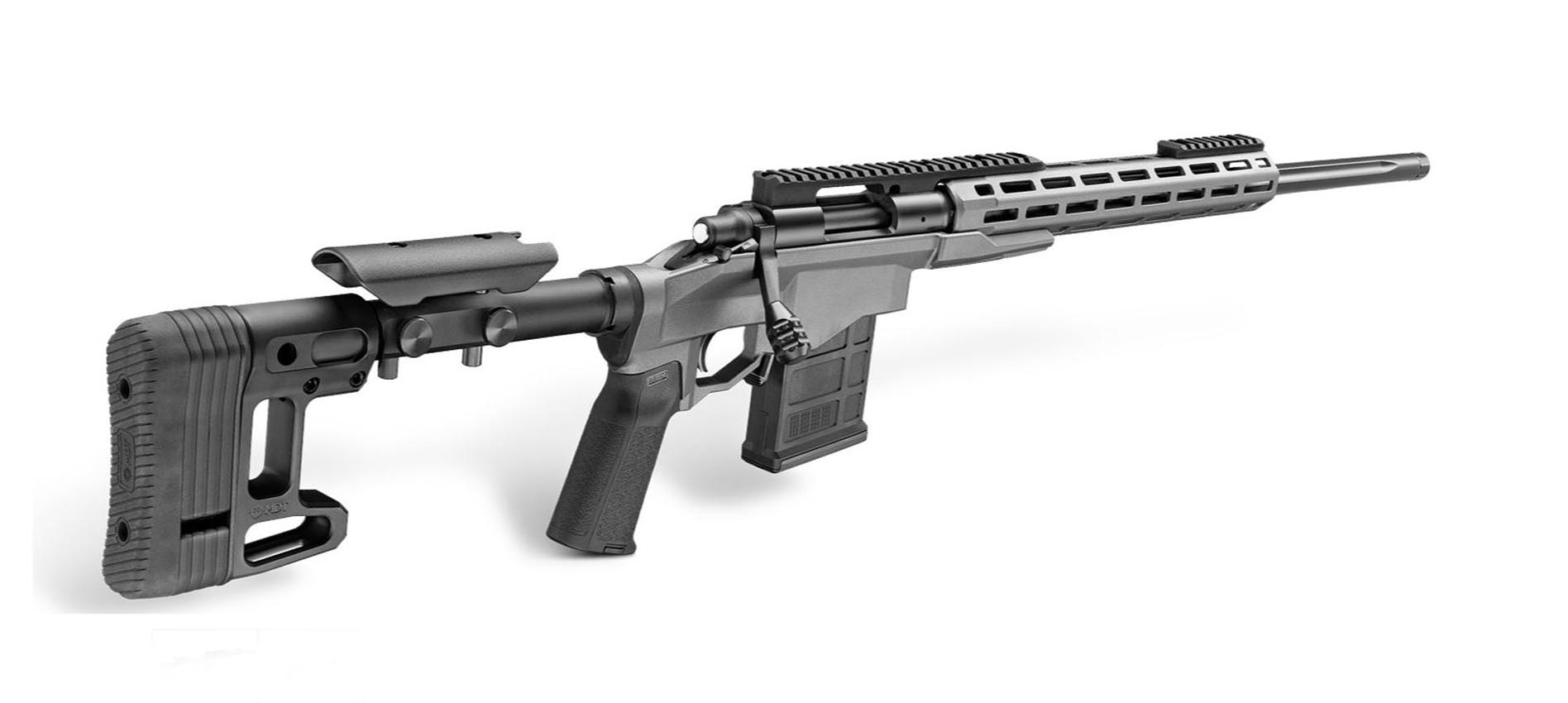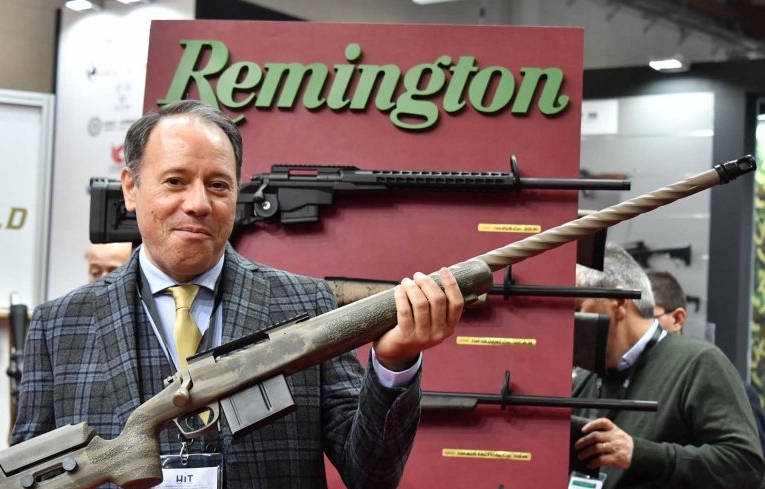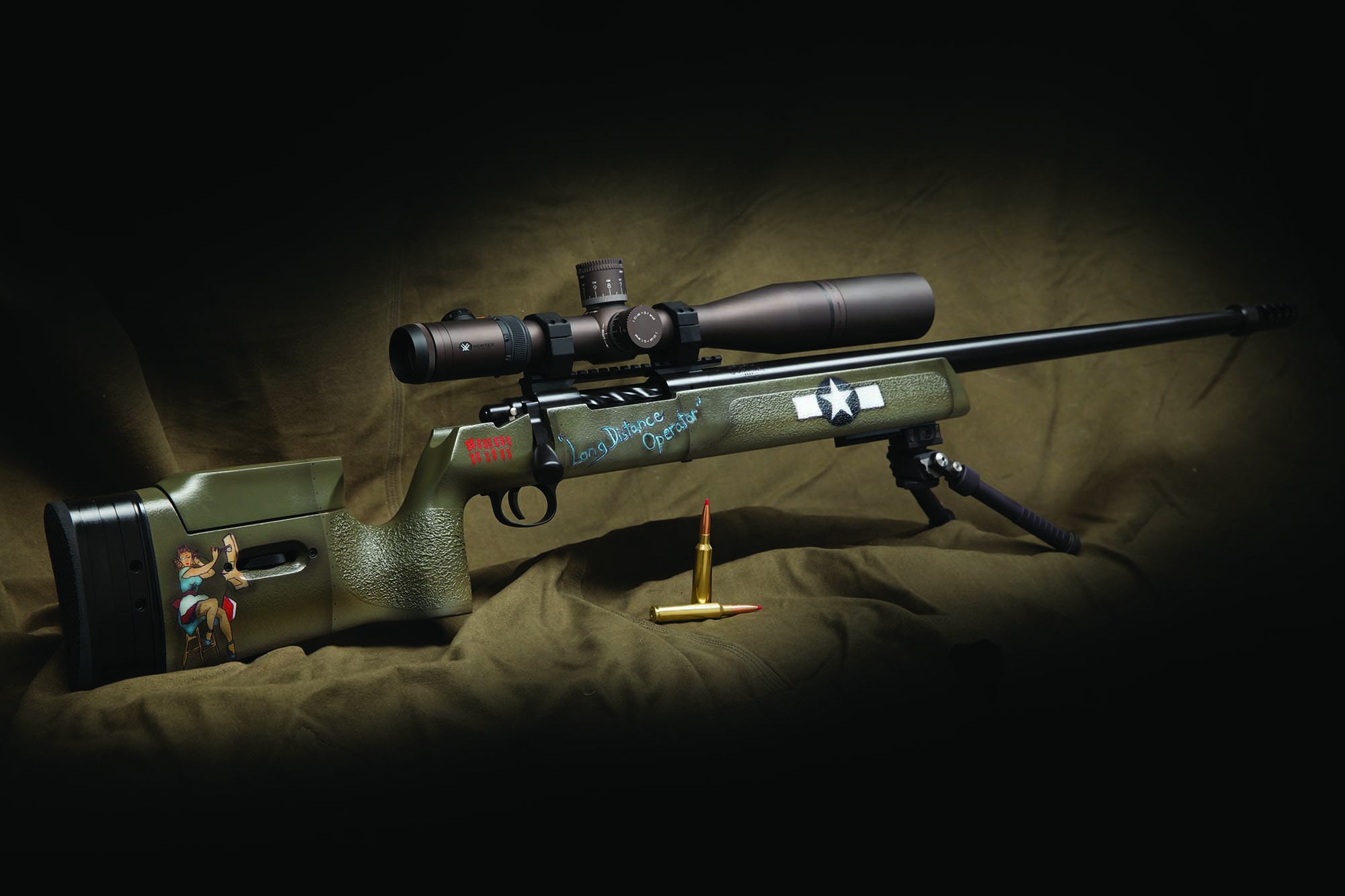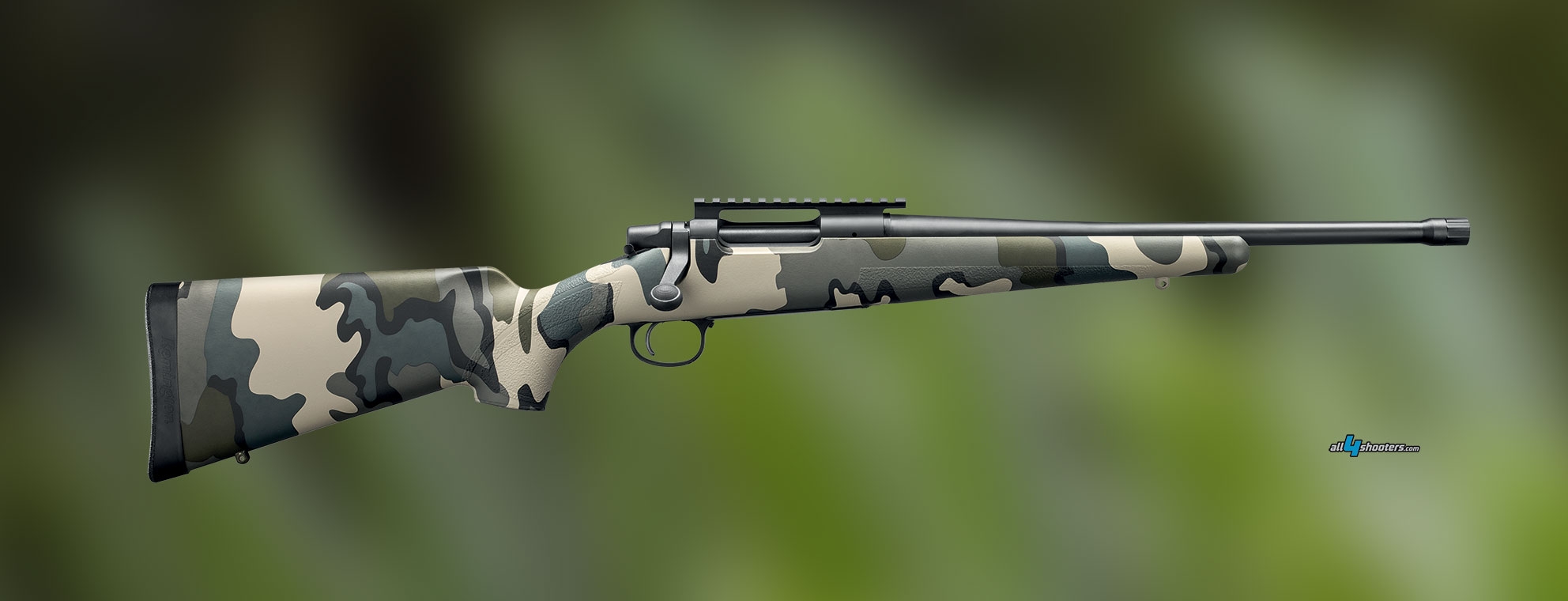The XCR rifle belongs to the Remington 700 series, which was an instant hit when it first appeared on the market. It looked nice and the excellent trigger was crisp and adjustable. Later, the Ilion-based company introduced an "X-Mark Pro" trigger featuring a pull weight of about 2.5 kg in a successful attempt to defend itself against rapacious local lawyers. That trigger is here too, but I set it to about one kilogram and a half and I like it that way.
The 700 series was meant to be inexpensive to manufacture, at least with the technologies available at the time, but the careful design allowed to maintain the accuracy characteristics of the previous series, even improving them. The basic design, like all well-thought designs, is versatile, so much so that the 700 series can be said to be the most diversified rifle in the world.


Remington 700 XCR: details and features
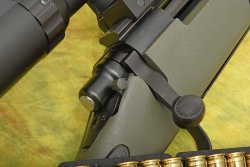
Among the many variations there is this XCR rifle, still based on the Remington action, machined from a round solid bar. The two-lug bolt requires a rotation of about 90 degrees – the bolt handle is typical of the 700 series. In the bolt head the extractor engages the cartridge groove only when the bolt itself is fully locked. With this solution, the bolt face provides a seamless ring that completely encloses the base of the cartridge.
To withstand the recoil there is a large and sturdy recoil lug that fits between the action and the barrel when the two parts are screwed together, with an aluminum bedding block. It's inexpensive and it works. Action and barrel are made from stainless steel, coated with the proprietary TriNyte treatment, a mix of nickel and zirconium nitride that underwent several salt spray tests, proving to be resistant to both corrosion and abrasion.
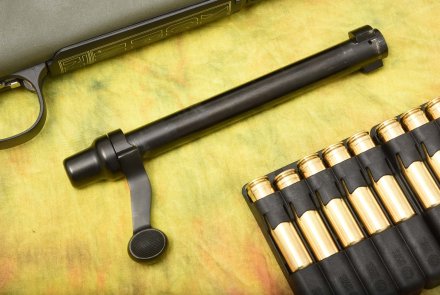
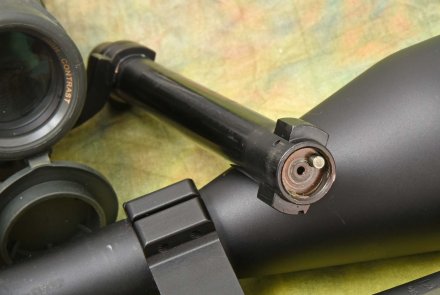
The stock is injection-molded and has rubber overmolds where a wooden stock would have a checkering, which allow a firm grip. It may not look elegant, but it is effective, as the soft rubber buttpad significantly reduces felt recoil.
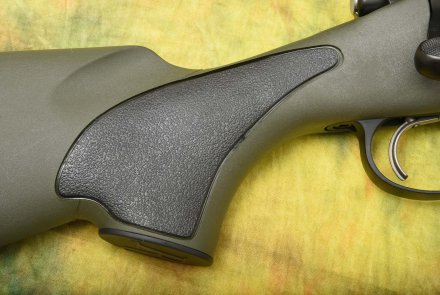
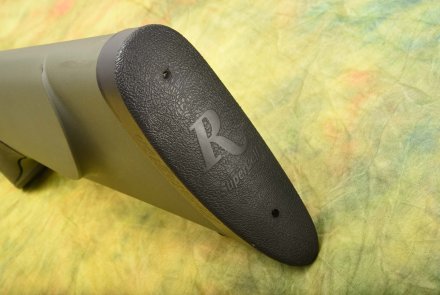
The Mauser-type magazine is not removable, and the two-position safety allows for the bolt operation to safely remove a chambered cartridge.
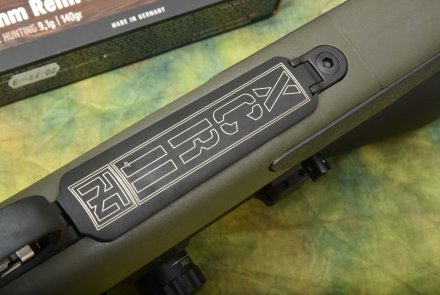
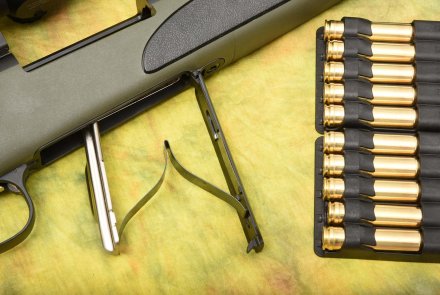
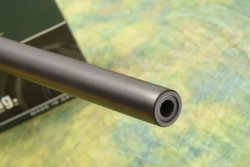
The barrel isn't free floating but features a pressure point in the stock; the successful location of that point evidently positioned a sine wave oscillation node at the muzzle, as the grouping shows.
The rifle has no metal sights but features four threaded holes, closed by tiny screws. To remove them use a strongly magnetized screwdriver, because if they fall on the ground it is almost impossible to find them. The threaded holes are for Remington optics mounting plates.
Test-firing the Remington Model 700 XCR II
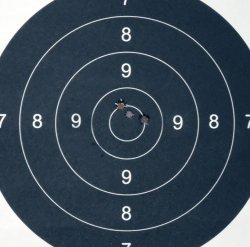
The test fire took place with a temperature of 31°C and with no wind. Considering that the cartridge is somewhat flat shooting, I had set the target at 300 meters, but the turbulence of hot air in front of the riflescope forced to go down to 200. One hundred meters seemed to me to be too few for this cartridge, and with the scope set at 6x, even at 200 m you could shoot quite fine. I still had about ten RWS cartridges with 150-grain bullet, excellent with this gun; I was out of 140 and 177-gr bullets, but they were also fine, although the 150-gr ones are the best, at least with this rifle. You can see the group: 0.35 MOA. With the other bullets we were anyway around a half-minute of angle, well under 1 MOA. I would have brought the chamois home even if I had shot it from 300 meters, a distance to be avoided, and this is what you can expect of a hunting rifle..
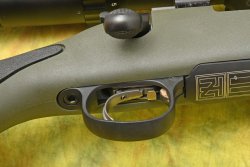
A couple of notes on the cartridge. With the 7mm Remington Magnum they wanted to put on the market an inexpensive cartridge combined with a gun that was also affordable, which contributed greatly to the success of the caliber. In fact, the European 6.5x68 and 7x66 vom Hofe SE calibers were usually chambered in custom weapons with a steep price and the ammo itself, produced in small quantities rather than mass-produced, could not be cheap. It's well known that no European manufacturer will ever be able to compete with a US manufacturer, who enjoys a domestic market inconceivable to Europeans. And even in that market there's no competition: a Weatherby Mark-5 rifle costed about three times as much as a Remington 700. Well-spent money, but still expensive.
A critical point: in the US bullets have a diameter of 7.21 millimeters, while in Europe they use 7.26 mm bullets. The obvious advice would be to use US ammunition for US guns and European ammunition for European guns, but it's always better to check the barrel internal diameter.
Remington Model 700 XCR II in 7mm RM: what can you use it for?
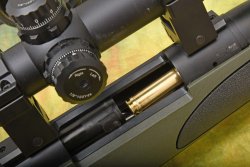
In my opinion, the prey of choice for the 7mm Remington Magnum is the chamois. With this American caliber you can shoot even from 200-250 meters (beyond this range it's not very ethical). The chamois should be stopped with the first shot, because it's sufficient that it takes a few more steps and you'll lose it – if it doesn't drop dead on the spot, it'll go to die in the woods. Recoil is normally described as vigorous although not punitive. It didn't feel that way to me, and I had the impression to fire a .308 with shooting range loads – only the 177-gr bullets made the recoil noticeable, but without being annoying. Hard-kicking calibers behave in a very different way. But with this accurate, effective and mild-recoil cartridge it's better not to get excited: the 7mm RM widens our range of action, but for the big boars in the East you need very different calibers.
Remington Model 700 XCR II: technical data and price
| Manufacturer: | Remington USA |
| Model: | XCR |
| Caliber: | 7mm Remington Magnum |
| Action: | bolt action |
| Barrel length: | 24” / 61 cm |
| Barrel material: | AISI
416 stainless steel, TriNyte treatment |
| Trigger: | X-Mark Pro |
| Safety: | two
position, manual |
| Magazine
capacity: | 3+1 rounds |
| Stock: | synthetic with overmold |
| Overall length: | 44.5” / 129 cm |
| Weight: | 7 3/8 lb / 3350 g |
| Price (MSRP): | 1607
euro (price may vary in your country due to VAT and import duties) |



